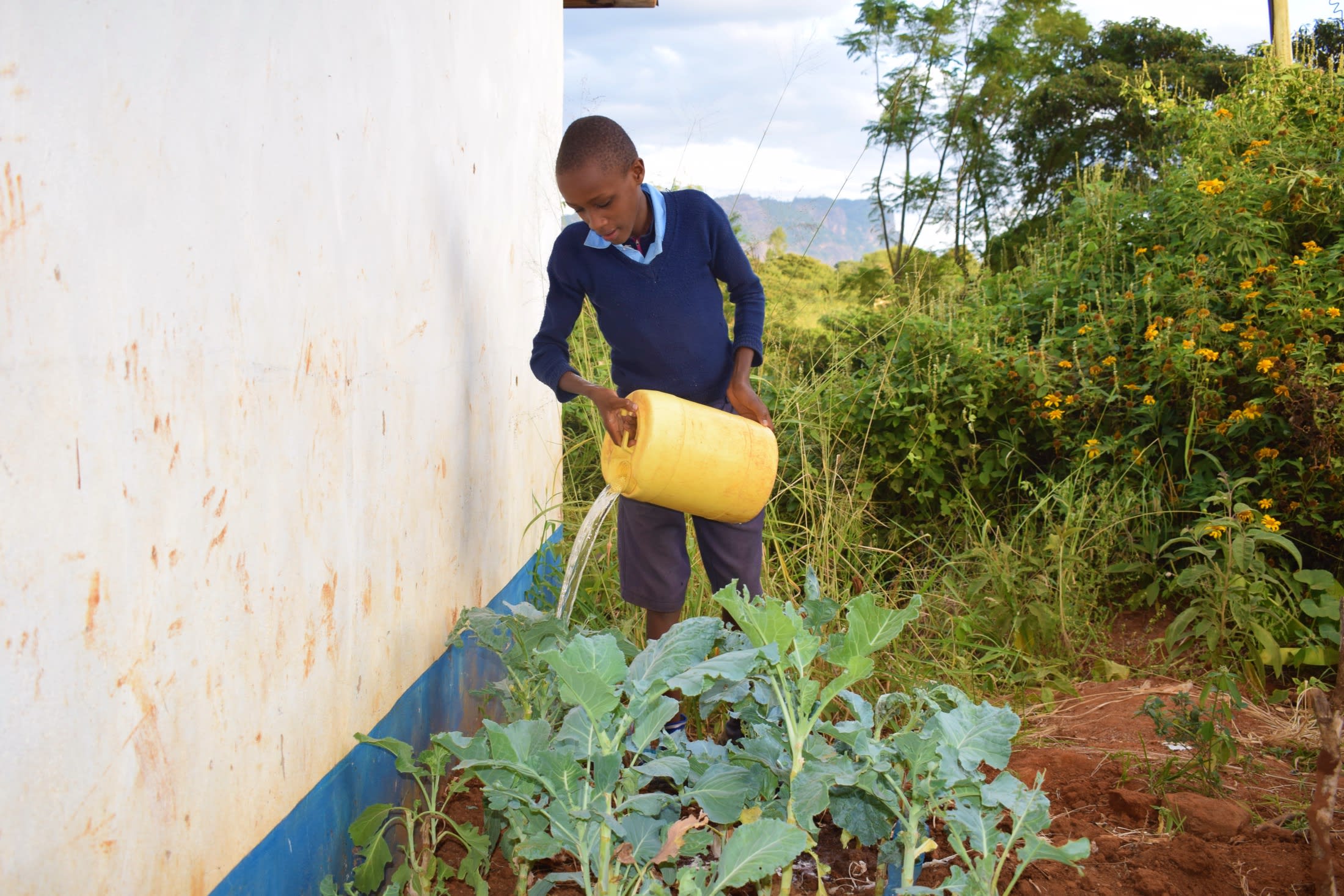Mbiuni Primary School is located in a rural area of Mbiuni village in Makueni County, Kenya. The environment of the school is calm and quiet, eliciting a conducive atmosphere for learning.
The school was established in 1998 by the Africa Inland Church and the area community members and parents. With support from parents and the Ministry of Education's County Development Funds, the school has grown to 227 students.
The school has many challenges in getting water. They relied on a community rock catchment pipeline that would deliver water to the school, but it broke down, and they have not been getting water. Now, the school contracts parents to bring water to the school at a fee, and the children are also expected to carry jerrycans of water to school every day.
The parents' water is fetched from uncertain sources. The children also bring water from home, and at times, they bring very dirty water. Complaints of stomachaches and headaches are frequent among the students - a likely result of drinking unsafe water and not having enough.
"There is a lot of absenteeism of the students due to sicknesses, which makes learning difficult, resulting in poor academic performance. When the students are not healthy in class, their concentration span drifts a lot. Teachers also fall sick from drinking the water that is brought to school, and they spend a lot of finances on treatment costs," said Senior Teacher Jerald Mwangangi.
Due to the school's insufficient water supply, the school's feeding program is very unreliable and the latrines are rarely washed.
"There are a lot of challenges in getting water. At times, we are sent out of class to fetch water at River Kumbo, one kilometer away from the school. The water we fetch from this river is usually dirty and often results in stomachaches and headaches. Being sent out of class is time-wasting and affects our academic performance," said Veronica, a student.
Rain Tank
We will build a 104,000-liter rain tank for this school, making the others look tiny in comparison. Because of how rarely it rains in Southeastern Kenya, this tank's large volume is designed to store as much water as possible during the seasonal rains, making more water available through the dry months. This water will benefit the students, teachers, and supplementary staff.
Parents will mobilize the materials needed for construction, including sand, stones, and water. They will also lend their strength and time to help with the construction. We will complement their materials with a skilled artisan to lead the project and provide the tools, lumber, metal, cement, and gutter system.
As soon as the tank has time to cure, it can begin collecting rainwater for the school's use.
Training
We will train students and staff on sanitation, hygiene, and other topics for one day. Those in attendance will form a school health club that will promote good hygiene and sanitation practices at school and home. They will learn all of the steps to proper handwashing, how to treat water, and how to keep their environment clean. The school will also be taught how to oversee best and maintain their new rain tank and handwashing stations.
Handwashing Stations
A total of 3 handwashing stations will be installed upon the project’s completion and before training. These are 1,000-liter plastic tanks fitted with 3 taps each, allowing 9 students to wash their hands at once. The student health club and school management will be responsible for making sure the tanks are filled with water and that a cleaning agent such as soap or ash is always available.

 Rainwater Catchment
Rainwater Catchment
 Rehabilitation Project
Rehabilitation Project































